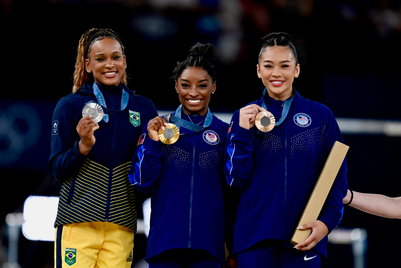The MediaCom Sport Olympics tracker consolidates all social media mentions of the 25 Olympic sponsors that take place on Twitter, and for the purposes of this analysis focuses on those from the UK. The Olympics tracker calculates a performance score for each brand, forming a ranking to indicate which brand is getting the best social media response to its Olympics sponsorship. The score is affected by the positivity or negativity of the comments, the reach and the engagement.
The 2012 Olympics has been described as the most social Olympics with the chatter on Twitter so voluminous that the International Olympic Committee has
requested that fans tone it down, as it was affecting TV coverage.
Besides the sports, fans have also been actively discussing the brands sponsoring the event. The increased chatter has been ideal for some, less so for others.
Coca-Cola surged to the top of the rankings last week as its sponsorship of the Torch Relay paid off with a high level of positive comment, said Marcus John, global head of Mediacom Sport. "The Torch Relay attracted huge attention as it toured the streets of London, from which Coke received significant mentions, culminating in a high-profile concert in Hyde Park, presented by Coca-Cola, the night before the opening ceremony," he said.
Other sponsors doing well on Twitter are Samsung, which has benefited from positive high reach engagement originating from celebrity brand ambassadors endorsing the Torch Relay campaign, while P&G's "best job" TV advert remains one of the most shared pieces of Olympic video content and one of the most popular campaigns, added John.
Trailing at the foot of the table is McDonald's, due to the negativity surrounding its sponsorship of the Olympics. In addition to the public row over brand monopolies, McDonald's was a victim of a high profile celebrity debate started by Boris Johnson in support of the brand, which led to a celebrity driven negative backlash on Twitter instigated by
comedian Frankie Boyle, John noted. "This increased their negative score significantly and continued to highlight the negative public opinion surrounding McDonald's Olympic association."
The risk in a high-profile sponsorship such as the Olympics is that it will increase both negative and positive chatter about the companies involved. In Adidas' case, its score has been impacted by an ongoing social-media regarding severance pay for Indonesian workers, combined with Nike's popular ambush TV campaign, John commented.
In the case of Dow Chemicals, Olympic conversations have increased the activity around the brand by about 25 per cent. Unfortunately nearly half of all the comments were negative. This impacted the score for a brand that would normally attract a broadly neutral level of activity in its context," John said.




.jpg&h=334&w=500&q=100&v=20250320&c=1)

.jpg&h=334&w=500&q=100&v=20250320&c=1)

.jpg&h=334&w=500&q=100&v=20250320&c=1)


.jpg&h=334&w=500&q=100&v=20250320&c=1)
.jpg&h=334&w=500&q=100&v=20250320&c=1)
.jpg&h=334&w=500&q=100&v=20250320&c=1)
.jpg&h=268&w=401&q=100&v=20250320&c=1)



.png&h=268&w=401&q=100&v=20250320&c=1)
+(900+x+600+px)+(3).png&h=268&w=401&q=100&v=20250320&c=1)
+(900+x+600+px)+(1).png&h=268&w=401&q=100&v=20250320&c=1)
.png&h=268&w=401&q=100&v=20250320&c=1)